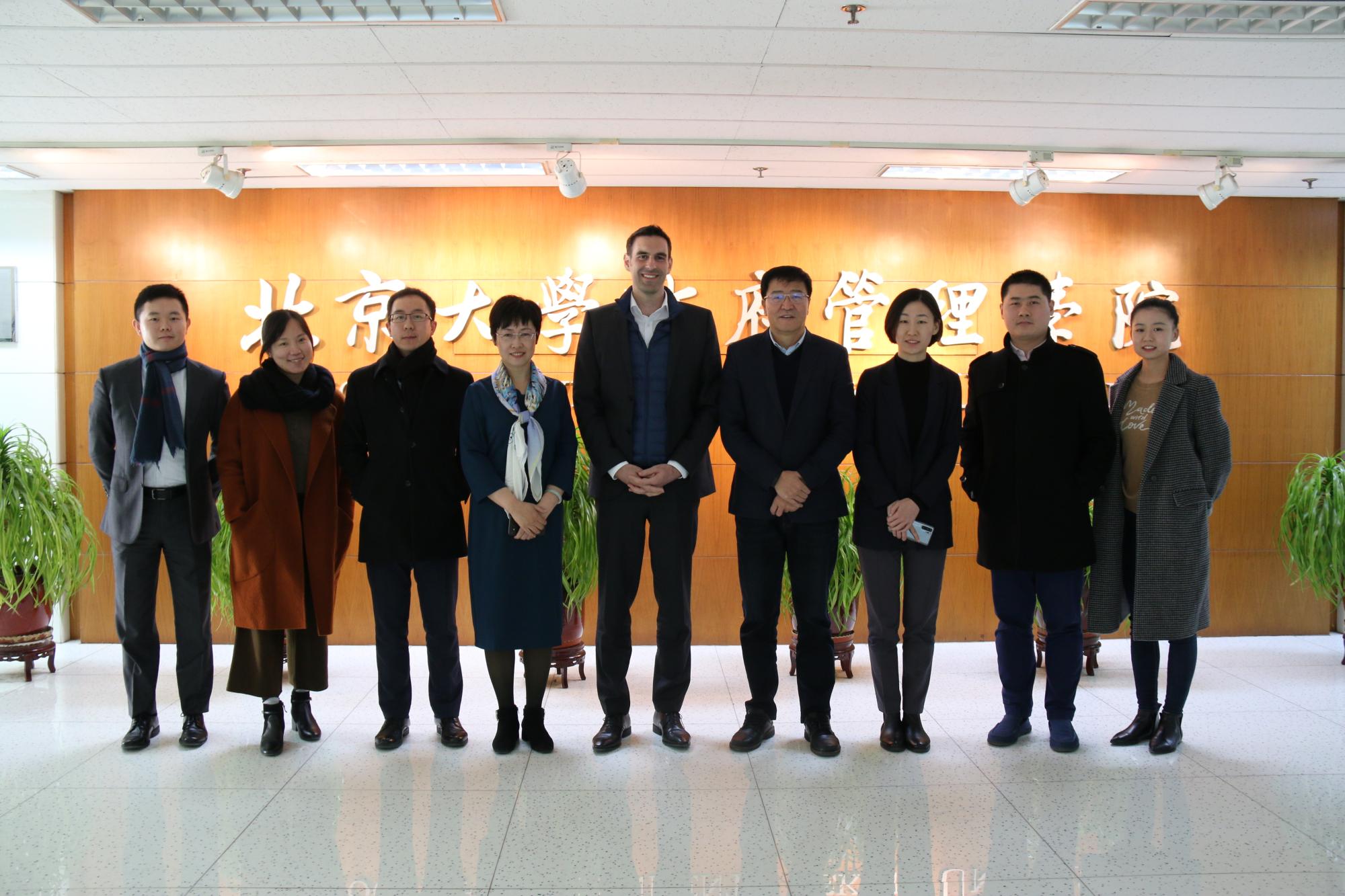Peking University Institute of Public Governance (IPG) held “Smart City& Smart Transportation” seminar on Nov 28, 2019 at Leo KoGuan building. The seminar was presided by Ms. Haiyan Li, Vice Dean of IPG. Dean Jirong Yan, as well as the professor representative, the alumnus representative, and the enterprise representative BMW (China) New Technology Innovation Office attended the seminar.
The seminar raised a series of discussion about “smart city”, including the concept of smart city, the related applications worldwide, infrastructure and service, and policy development and implementation in China. Three major topics were addressed in the meeting:
The current development and future planning of smart cities;
Technology used in smart transportation;
Smart mobility experience and smart transportation management.
Dean Jirong Yan kicked off the seminar with an interpretation of the “smart city” concept. He analyzed from the aspects of public governance, urban planning, and policymaking. He pointed out that smart city is dynamic and inclusive, related to many elements in daily life such as transportation, healthcare, housing and infrastructure, public security etc. Thus, the development of smart city must be a long-term multidirectional process, full of challenges and uncertainties.Vice Dean Haiyan Li followed that building smart cities is not just about physical infrastructure. It is more important to consider the relevant policymaking and strategic planning processes from a broader perspective. The ultimate goal should be to contribute to the public governance system in future cities.Associate Professor Lun Liu shared her researches, as well as those of other faculty members in the school, on the smart city topic. Her focus is on smart city and big data. She mentioned the current private and public transportation systems as part of the smart city project in different places including London, New York, Beijing, Shanghai, and Guangzhou.The alumnus representative Mr. Le Wang analyzed the reasons behind the choice of smart city pilots, using examples of tycoon Chinese enterprises Baidu and Alibaba. All the attendees agreed that with the increasing complexity of the future urban mobility system, the study of smart transportation has a bright future of application.
BMW Group is one of the world-famous automobile companies. Their New Technology Innovation Offices worldwide focus specifically on the research and development of smart vehicles and smart transportation including that of New Energy, Internet Connected Vehicles (ICVs), AI, and Shared Economy. Currently, China is BMW’s biggest R&D center outside Germany. During the seminar,VP of BMW (China) New Technology Innovation Office, Mr. Peter Riedl shared BMW’s experiences and experiments regarding smart transportation and smart mobility. He introduced the contributions BMW has made in the field of “sustainable development of transportation” in recent years. Their attempts include the development of alternative power systems and smart transportation management system for congestion areas in cities.
The group also discussed the future requirements of “smart governance”. They agreed that it is crucial to build a multilateral mechanism for the development of smart city and smart transportation, aiming to involve governments, research institutes and industries. As the enterprise representative, BWM expressed their willingness for future cooperation with IPG in relevant fields of smart transportation.

Group photo of the seminar attendees